Life
Sign up for our newsletter
We summarize the week's scientific breakthroughs every Thursday.
-
 Animals
AnimalsWhales are full of toxic chemicals
For decades, scientists have been finding troublesome levels of PCBs, mercury and other toxic chemicals in whales and dolphins.
-
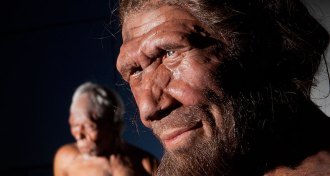 Science & Society
Science & SocietyHuman evolution, biomimicry and more go on display
A new human evolution gallery and a lecture series on Europa are among science events to explore in February 2016.
-
 Genetics
GeneticsBubonic plague hung out in Europe
The plague bacterium Yersinia pestis may have lurked in a medieval European reservoir for at least 300 years, researchers from Germany suggest January 13 in PLOS ONE.
-
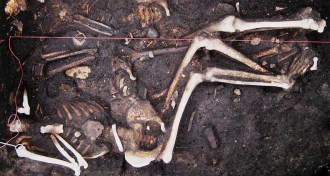 Genetics
GeneticsBubonic plague hung around in Europe
DNA from plague victims suggests that a European reservoir of the plague bacterium Yersinia pestis could have fueled the medieval pandemic.
-
 Health & Medicine
Health & MedicineCDC issues travel guidelines for pregnant women
Pregnant women should consider postponing travel to much of Latin America and the Caribbean.
By Meghan Rosen -
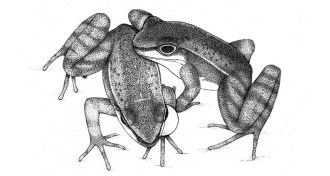 Animals
AnimalsTorrent frog flirting is complicated
The courtship displays of Brazilian torrent frogs entail a subtle but sophisticated slew of songs and movements.
-
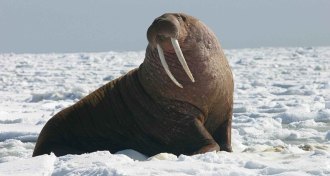 Life
LifeSearch is on for missing pieces in puzzle of male genital diversity
The debate over extreme diversity of male genitalia needs to rethink the female side. And the landscape.
By Susan Milius -
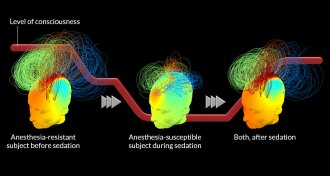 Neuroscience
NeuroscienceMeasuring brain waves may help predict a patient’s response to anesthesia
Brain signatures hint at whether a person will resist or succumb to anesthesia.
-
 Environment
EnvironmentPCB levels still high in Europe’s killer whales, smaller dolphins
PCBs banned for decades still show up at extremely high concentrations in Europe’s killer whales and other dolphins.
By Susan Milius -
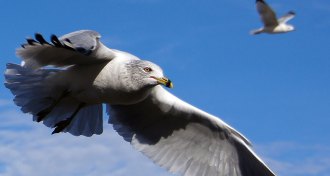 Animals
AnimalsAlien species fly on the wings of ducks and other waterbirds
Ducks, geese and other waterbirds can transport nonnative species and help alien invaders establish themselves.
-
 Science & Society
Science & SocietyInsights into sexes’ differing responses to stress
Chronic stress takes its toll on everyone. One of our reporters follows a line of research suggesting that stress hits women harder (or at least differently) than men.
By Eva Emerson -
 Life
LifeSigns of food allergies may be present at birth
Overactive immune cells may prime babies for food allergies.